A Mirror for Lovers
A Mirror for Lovers
Shake-speares Sonnets as Curious Perspective
William F. Zak
Lexington Books
Lanham Boulder New York Toronto Plymouth, UK
Published by Lexington Books
A wholly owned subsidiary of The Rowman & Littlefield Publishing Group, Inc.
4501 Forbes Boulevard, Suite 200, Lanham, Maryland 20706
www.rowman.com
10 Thornbury Road, Plymouth PL6 7PP, United Kingdom
Copyright 2013 by Lexington Books
All rights reserved. No part of this book may be reproduced in any form or by any electronic or mechanical means, including information storage and retrieval systems, without written permission from the publisher, except by a reviewer who may quote passages in a review.
British Library Cataloguing in Publication Information Available
Library of Congress Cataloging-in-Publication Data
Zak, William F., 1945
A Mirror for Lovers : Shake-speares Sonnets as Curious Perspective / William F. Zak.
pages cm
Includes bibliographical references and index.
ISBN 978-0-7391-7510-1 (cloth : alk. paper) ISBN 978-0-7391-7511-8 (electronic) 1. Shakespeare, William, 15641616. Sonnets. 2. Shakespeare, William, 15641616Criticism, Textual. 3. Sonnets, EnglishHistory and criticism. 4. PlatoInfluence. 5. Love in literature. I. Title.
PR2848.Z35 2013
821'.309dc23
2012044851
 The paper used in this publication meets the minimum requirements of American National Standard for Information SciencesPermanence of Paper for Printed Library Materials, ANSI/NISO Z39.48-1992.
The paper used in this publication meets the minimum requirements of American National Standard for Information SciencesPermanence of Paper for Printed Library Materials, ANSI/NISO Z39.48-1992.
Printed in the United States of America
I th under Column there doth stand
Inamorato with folded hand;
Down hangs his head, terse and polite,
Some ditty sure he doth indite.
His lute and books about him lie,
As symptoms of his vanity.
If this do not enough disclose
To paint him, take thyself by th nose.
Robert Burton, The Argument of the Frontispiece, Anatomie of Melancholy
Within the infant rind of this weak flower
Poison hath residence and medicine power;
For this, being smelt, with that part cheers each part,
Being tasted, stays all senses with the heart.
Two such opposed kings encamp them still
In man as well as herbs, grace and rude will;
And where the worser is predominant,
Full soon the canker death eats up that plant.
William Shakespeare, Romeo and Juliet (2.3.2330)
Beauty within itself should not be wasted.
William Shakespeare, Venus and Adonis (130)
He who resolves to love God, and to love his neighbor as himself, not according to man but according to God, is on account of this love said to be of good will; and this is in Scripture more commonly called charity, but it is also, even in the same books, called love.... Some are of opinion that charity or regard ( dilectio ) is one thing, love ( amor ) another. They say dilectio is used of good affection, amor of an evil one. But it is very certain that even secular literature knows no distinction.
The right will is, therefore, well-directed love, and the wrong will is ill-directed love.
St. Augustine of Hippo, City of God , XIV 7

Contents

Preface
The introductory chapter of this book sketches out the organizing tropes of the sonnet sequence tradition Shakespeare utilizes and refines. Subsequent chapters examine each of the 154 sonnets under a labor-intensive, microscopic lens while grouping them into thematic clusters, clarifying along the way the connection between the sequence and both the runic dedication introducing the sonnets and the female complaint, a seemingly unrelated appendage, that concludes the original Q manuscript of these poems.
The sonnets veiled dramatizations of Shake-speares often disturbingly personal addresses to a fair young man and a dark lady have generally been thought more than a miscellany lyrically exploring changeable feeling; and yet, when viewed in the round, the entiretys numerous disjunctions have always stymied any final integration into a single narratological account purposeful enough to give the sequence a completely satisfying sense of closure.
For four centuries now, the tale the sonnets have been repeating has simply provided tantalizing hints of some meaningful story just beyond our grasp. I argue here that this must be so because, symbolically speaking, the figure telling his story in it is none other than Tantalus himself. The author of these poems is prominently and idiosyncratically named Will-I-Am Shake-speare, his patronymic curiously spelled outself-dividedon Qs title page and thereafter kept before readers in the same orthographically odd nomenclature by running titles throughout the manuscript, the speakers symbolic identity further specified in Sonnet 135 and as a person named Will (his self-identification there even italicized) whom readers overhear discoursing obsessively about his thwarted will/Will hungrily pursuing its manipulative designs upon fair young man and dark lady alike. This nominal tale-teller need no more be identical with Shakespeare himself than Petrarchs poetical persona in the Canzoniere , Petr-arca, need be the Italian humanist. Petrarchs avatar, Petr-arca, is a stony casket or tomb, a lifeless shell of a man, whose sole poetical obsession is but an increasingly tedious and perpetually inconsequential litany of frustrations in and with love as he pursues it. Shakespeares spear-shaker, his flamboyantly brandished part on shameless display, is both earnest onanist gushing forth one brief ejaculation after another, each without enduring consequence in improving his relationships to others, and, likewise, a posturing warrior whose spear-shaking can be no more than empty bravado because it fails to engage the enemy actually facing him as he soldiers onan enemy not external to him, but within.
In Twelfth Night , Shake-speares creator had alluded to the curious perspective tradition in the visual arts wherein a paintings subject both is and is not what it is. In Richard II , he had described perspective paintings that straightforwardly gazed upon / Show nothing but confusion; eyed awry / Distinguish form (3.2 1820). Something of an analogous sort is at work in Q. The argument I will be adducing is that Qs perspective art (compare to Sonnet 24 :4) makes two distinct and competing voices materialize in Shakespeares sonnetsfashioning a poetical hologram that both is and is not what it is. In the poems figure/ground universe of meaning, one voice, that of Will-I-Am Shake-speare, discloses its flatteries as false good will/Will in the young man addresses and ever more profound contempttrue ill will/Willin those declarations aimed at a woman collourd il (:4), that figure long and wrongly presumed by persona and readers alike to be a faithlessly dark femme fatale. This is Shake-speares voice; but these same addresses, when eyed awry, disclose a far more gracious speaker the persona is not: an unfailingly generous voice incarnating true good will/Will.
In the partially submerged trope that organizes this miracle of rare devicethe parable of two stewards charged with the proper maintenance of the gift of beingShake-speare proves to be the faithless steward, condemning himself to self-defeating fear and anxiety about the possible loss of what he fondly hopes to preserve for himself from loss. The only reward for the troubled gauntlet this spirit chooses to run is, ironically, steady depreciation and diminution of the treasure with which hes been graced, his but a waste of time spent in diminishment of self and others in which his words and purposes labor in folly. The other voice audible here, by exhilarating and inspirational contrast, is the voice of the good steward, all one, and ever the same ( Sonnet 76 :5) that never ceases to promulgate and multiply the fullness of its gifts by communicating them to others in loveits essence the true good will/Will the Bard thus represents. His communiqus marry writer and generation upon generation of the readers he courts in them as co-equal partnerstogether only begetter (the dedications ONLIE . BEGETTER) and only begottenmerging into the divine plenitude of ever new births in beauty generated by their loving mutual regard. The gift of being the Bard labors to share in committing his treasure to us, does not come to nothing as the spear-shakers barren ejaculations do; it multiplies its good endlessly through completed intercourse with readers in whom new births in beauty are meant to gestate and increase without stop. For the Bard himself the true vision of time is not the spear-shakers grim reaper, but an eternal youth at the height of its potency communicated.

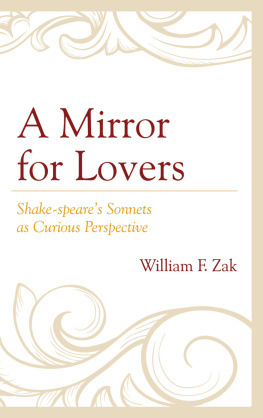
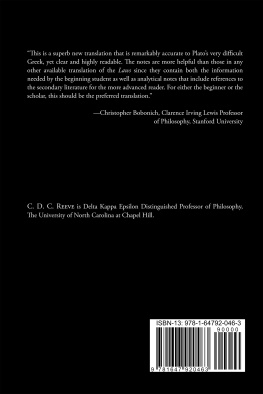

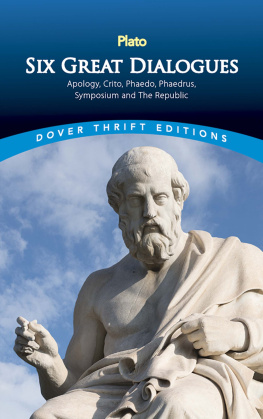
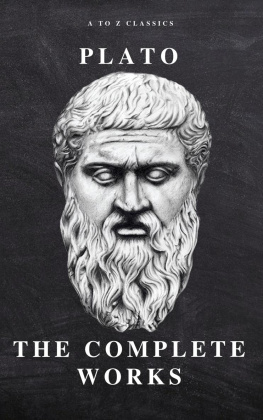


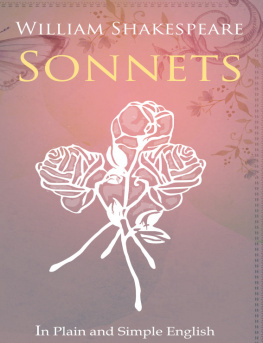
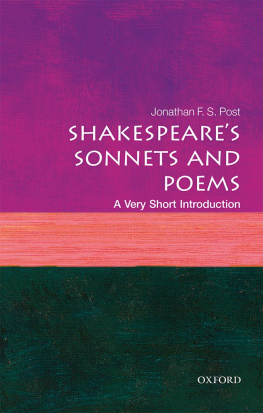

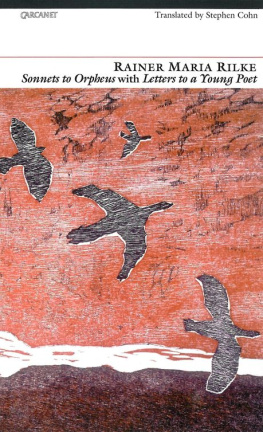

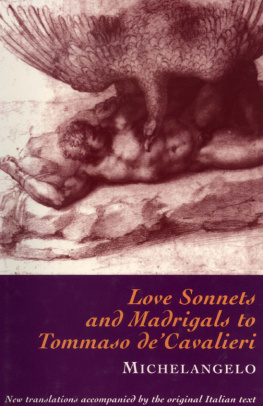

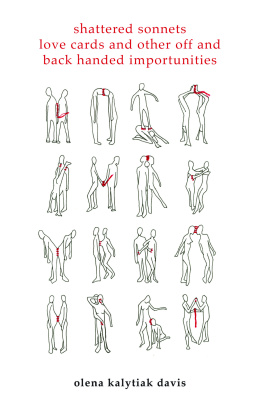
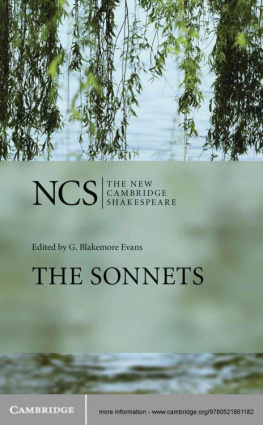

 The paper used in this publication meets the minimum requirements of American National Standard for Information SciencesPermanence of Paper for Printed Library Materials, ANSI/NISO Z39.48-1992.
The paper used in this publication meets the minimum requirements of American National Standard for Information SciencesPermanence of Paper for Printed Library Materials, ANSI/NISO Z39.48-1992.
